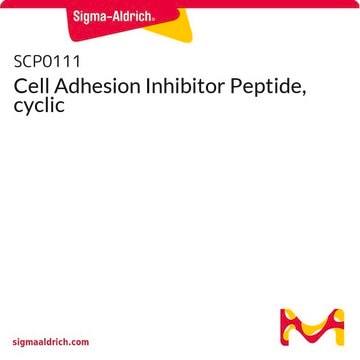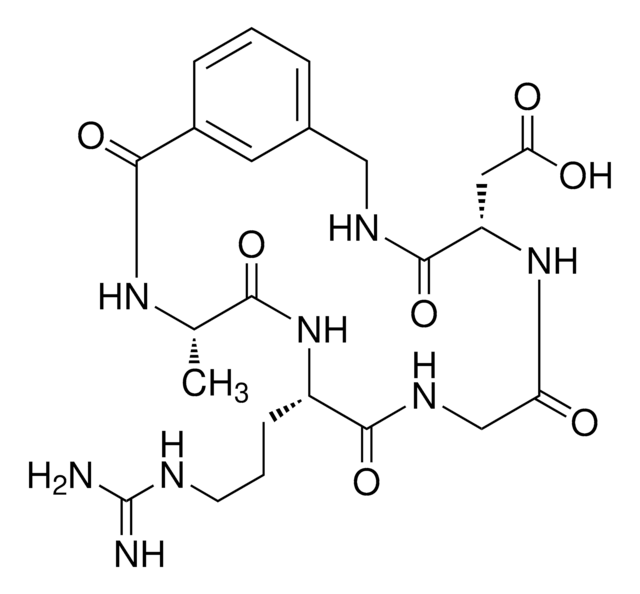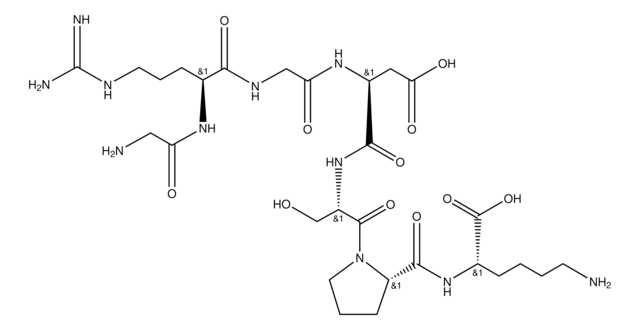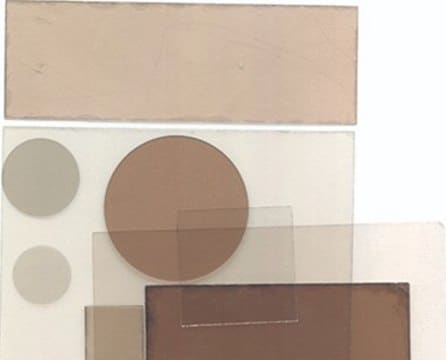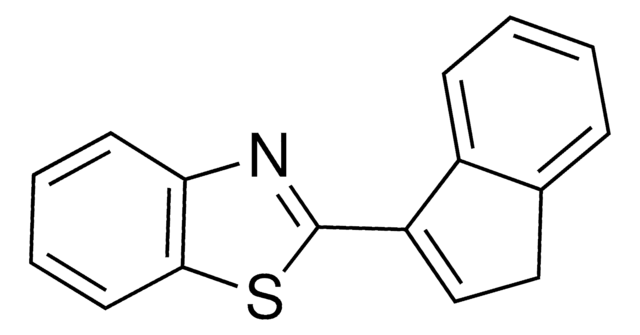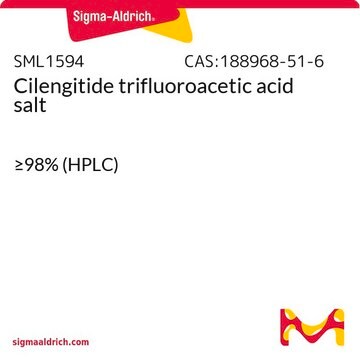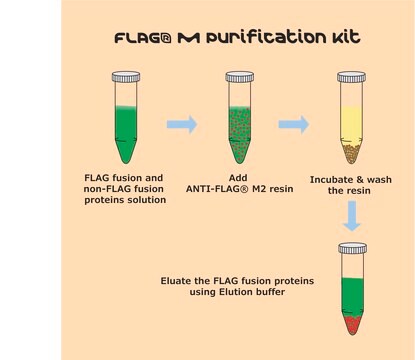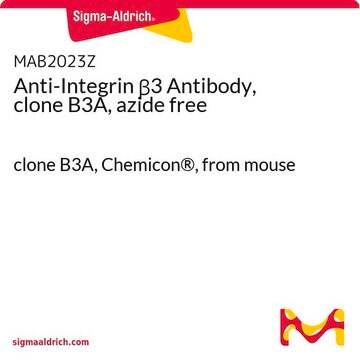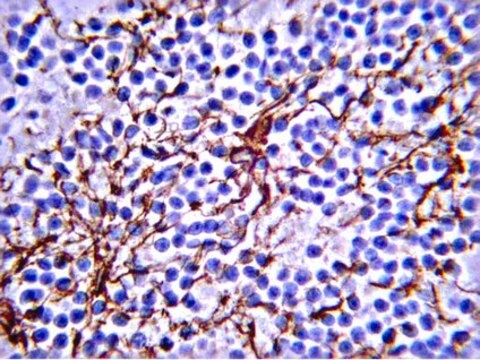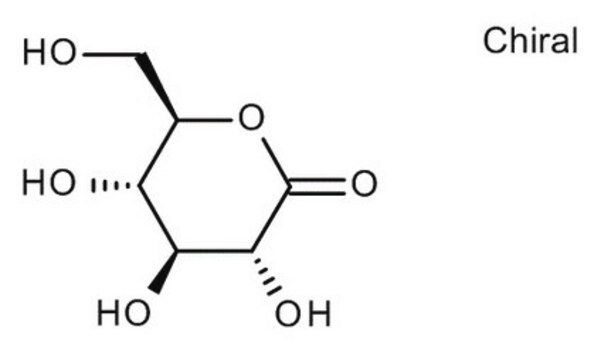SCP0157
Gly-Arg-Gly-Asp-Ser-Pro (GRGDSP)
Synonym(s):
GRGDSP Peptide, RGD Peptide
About This Item
Recommended Products
Assay
≥95% (HPLC)
form
lyophilized
composition
Peptide Content, ≥60%
storage condition
protect from light
storage temp.
−20°C
Amino Acid Sequence
General description
Application
- in coating well plate to monitor cell attachment by crystal violet staining
- to treat baby hamster kidney (BHK-21) cells to study the role of Arg-Gly-Asp (RGD) motif in the replication of Japanese encephalitis virus (JEV)
- to block RGD-dependent integrins or integrin signaling in INA-6 cells
- to study the role of the RGD-binding integrins in Gal-3-mediated cell adhesion
Biochem/physiol Actions
Storage Class Code
11 - Combustible Solids
WGK
WGK 3
Flash Point(F)
Not applicable
Flash Point(C)
Not applicable
Regulatory Listings
Regulatory Listings are mainly provided for chemical products. Only limited information can be provided here for non-chemical products. No entry means none of the components are listed. It is the user’s obligation to ensure the safe and legal use of the product.
JAN Code
SCP0157-5MG:
Certificates of Analysis (COA)
Search for Certificates of Analysis (COA) by entering the products Lot/Batch Number. Lot and Batch Numbers can be found on a product’s label following the words ‘Lot’ or ‘Batch’.
Already Own This Product?
Find documentation for the products that you have recently purchased in the Document Library.
Customers Also Viewed
Our team of scientists has experience in all areas of research including Life Science, Material Science, Chemical Synthesis, Chromatography, Analytical and many others.
Contact Technical Service
